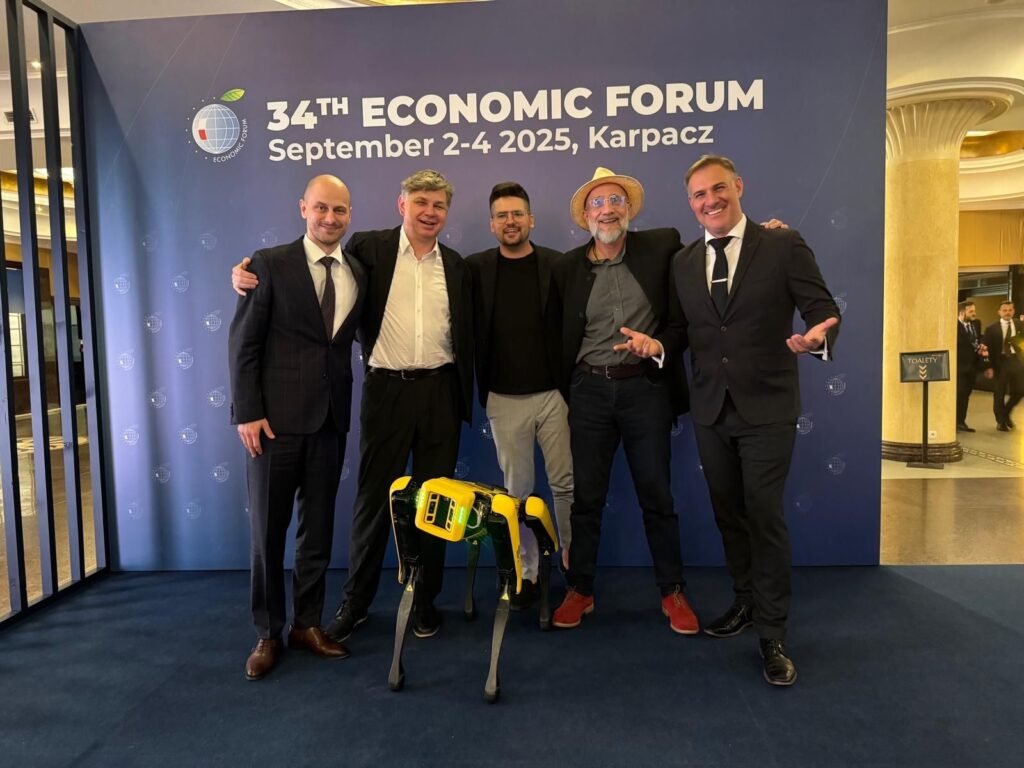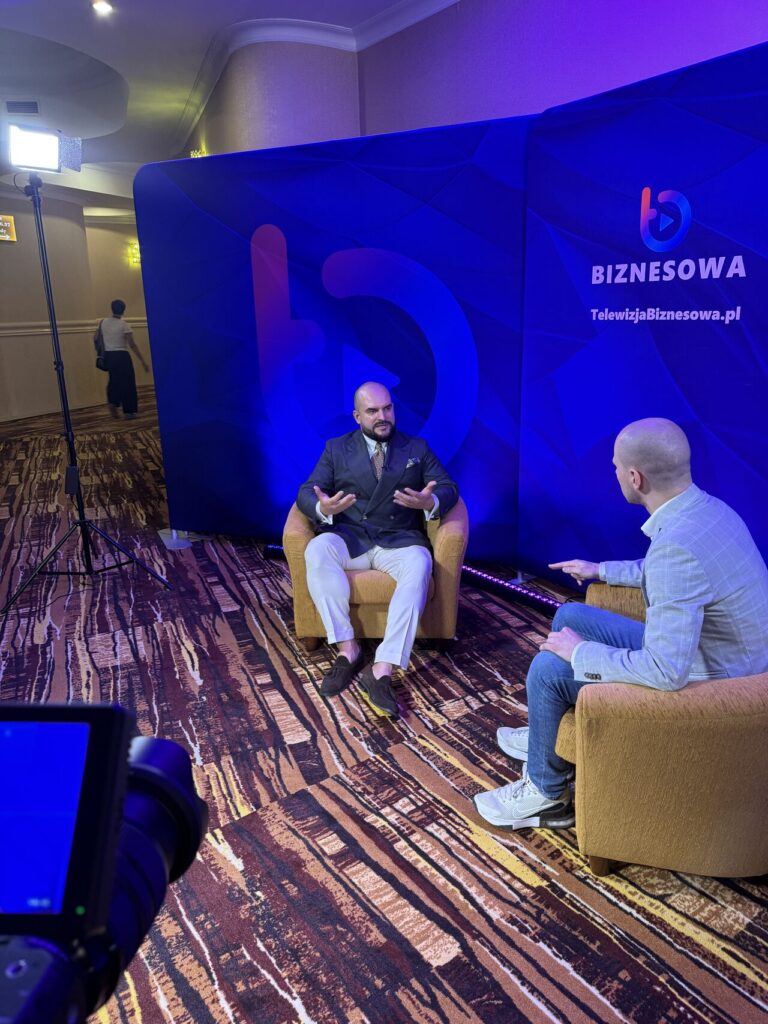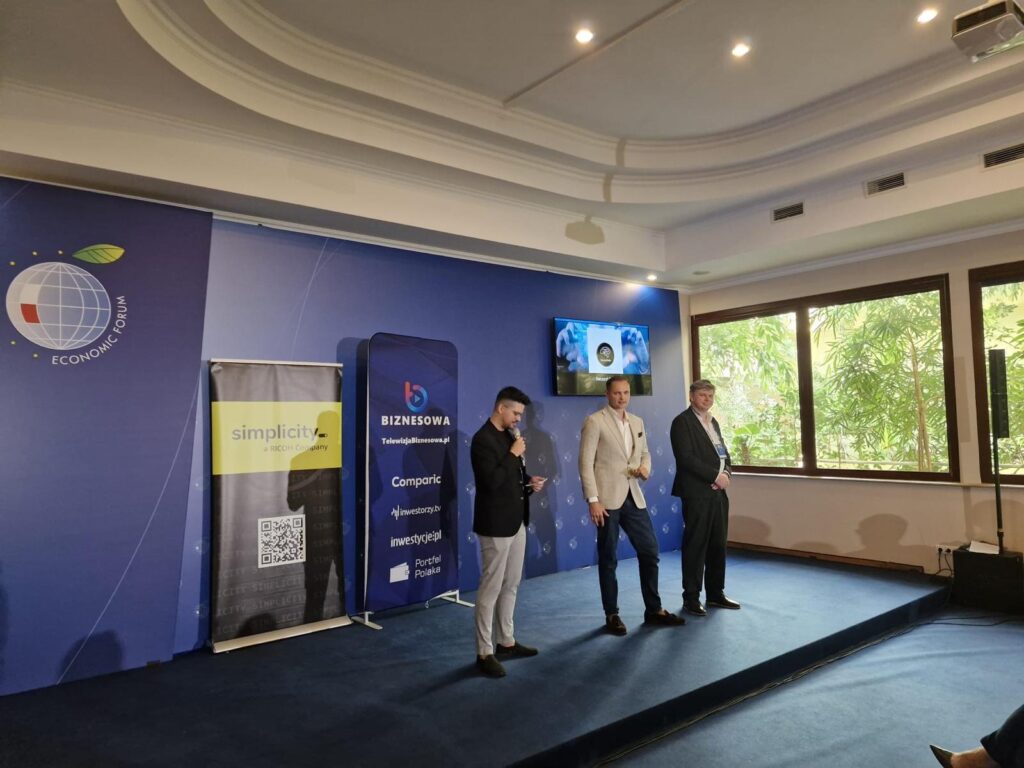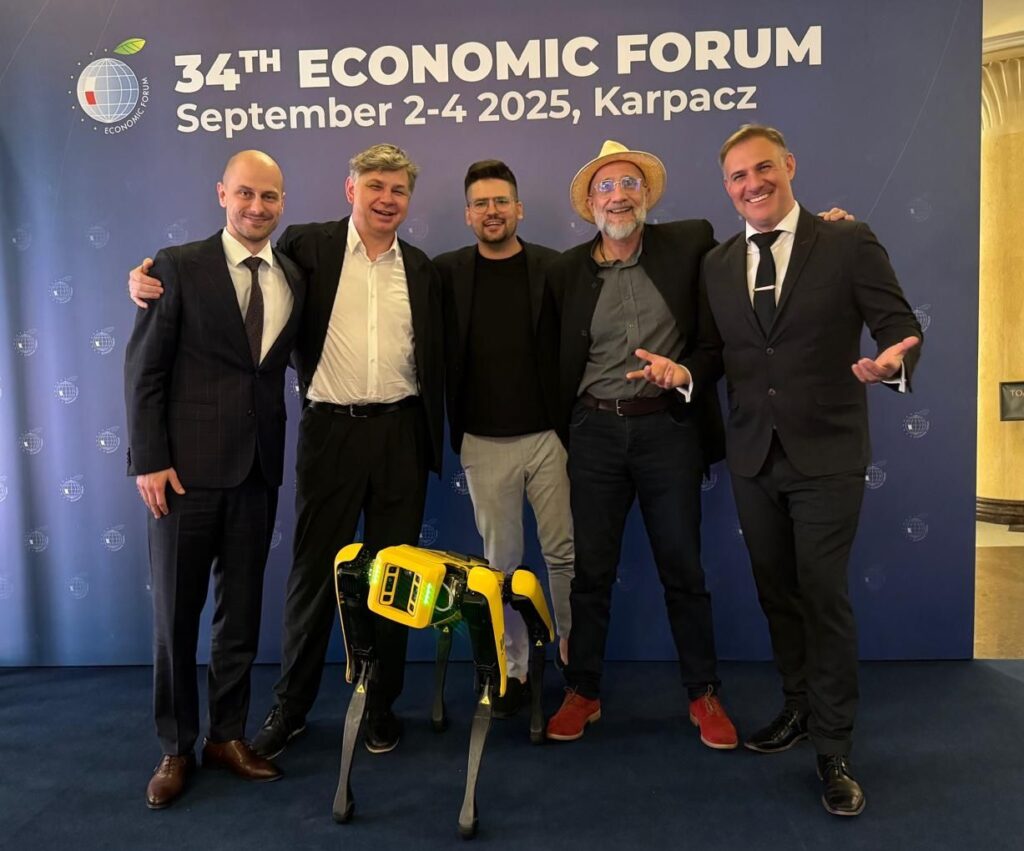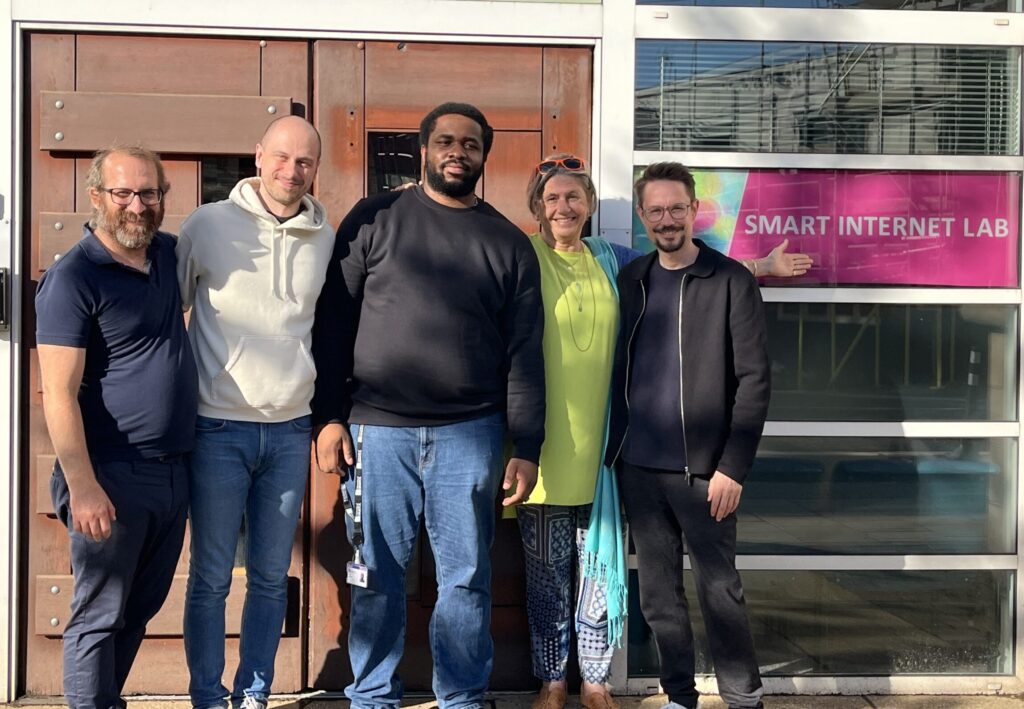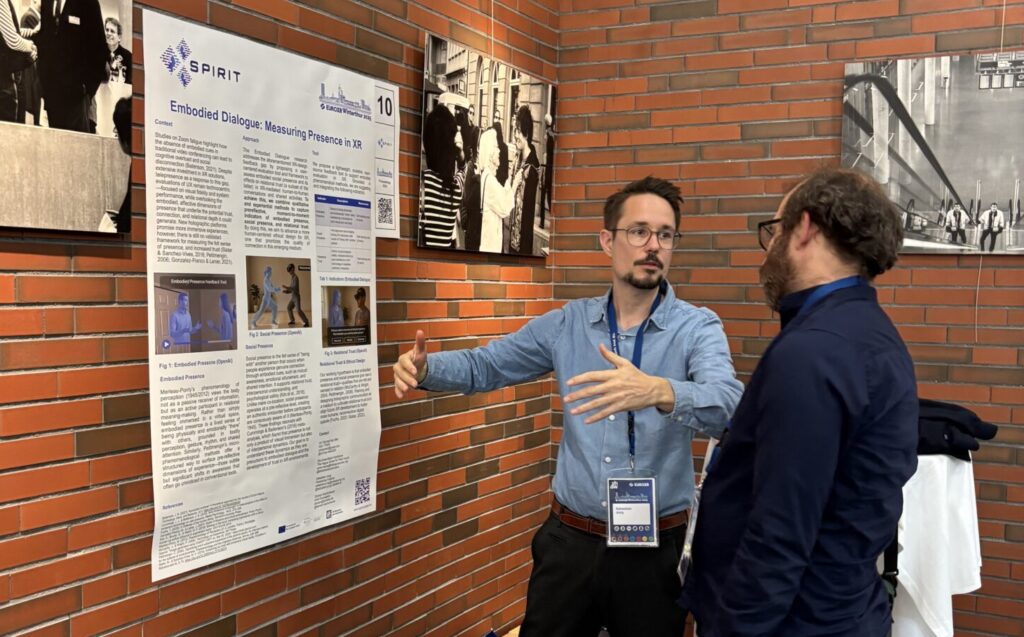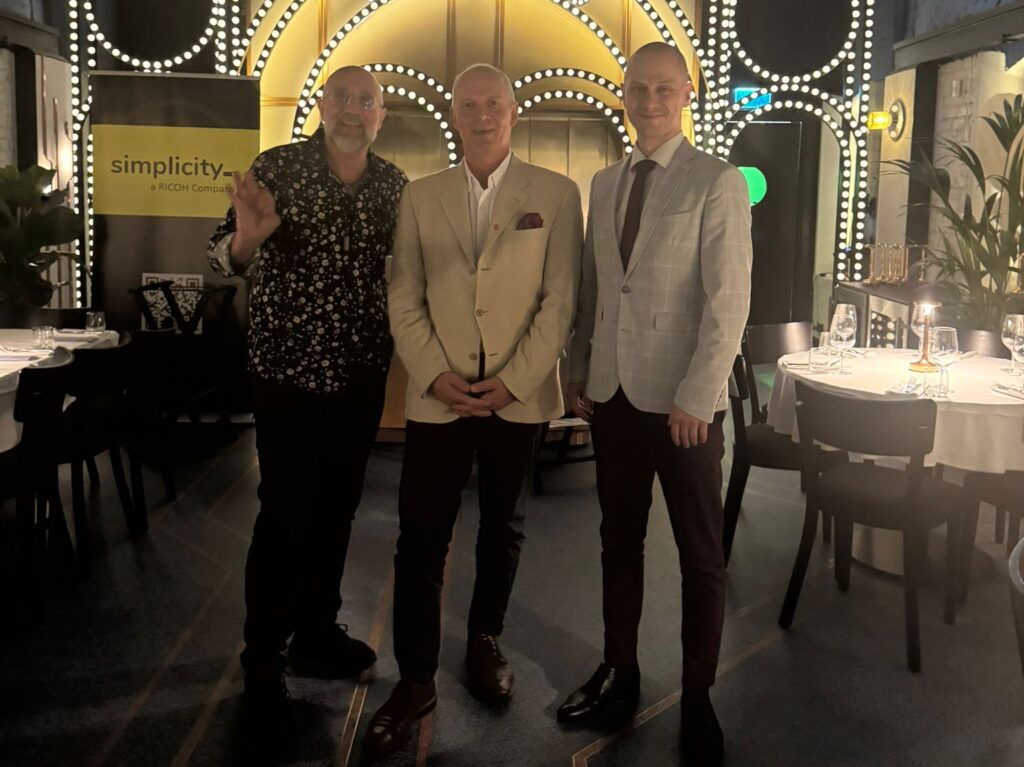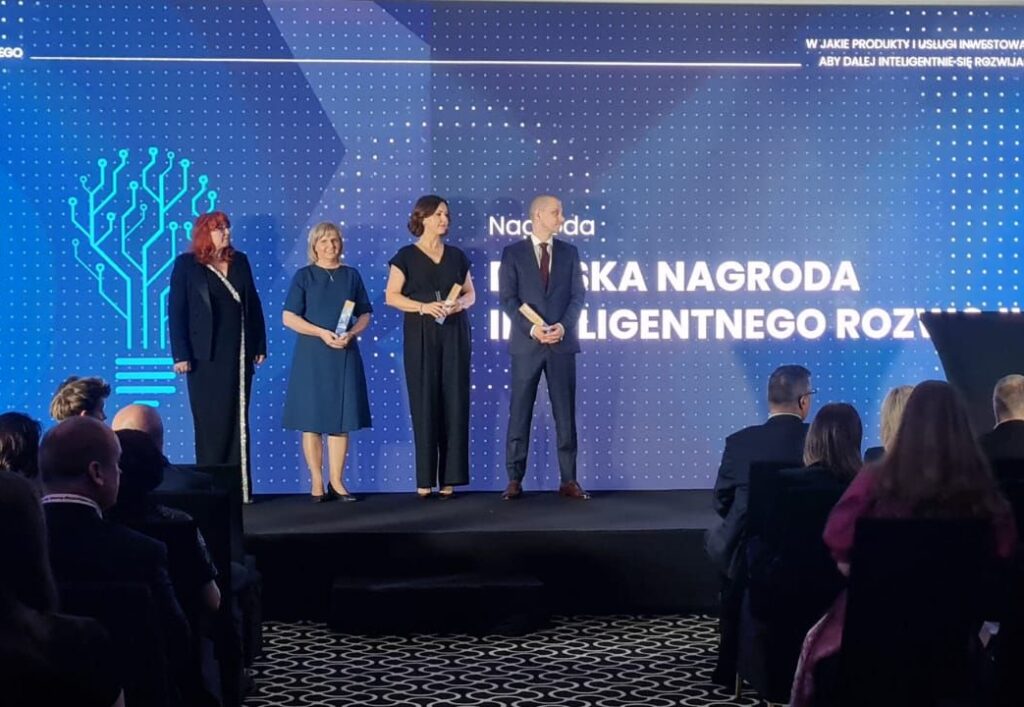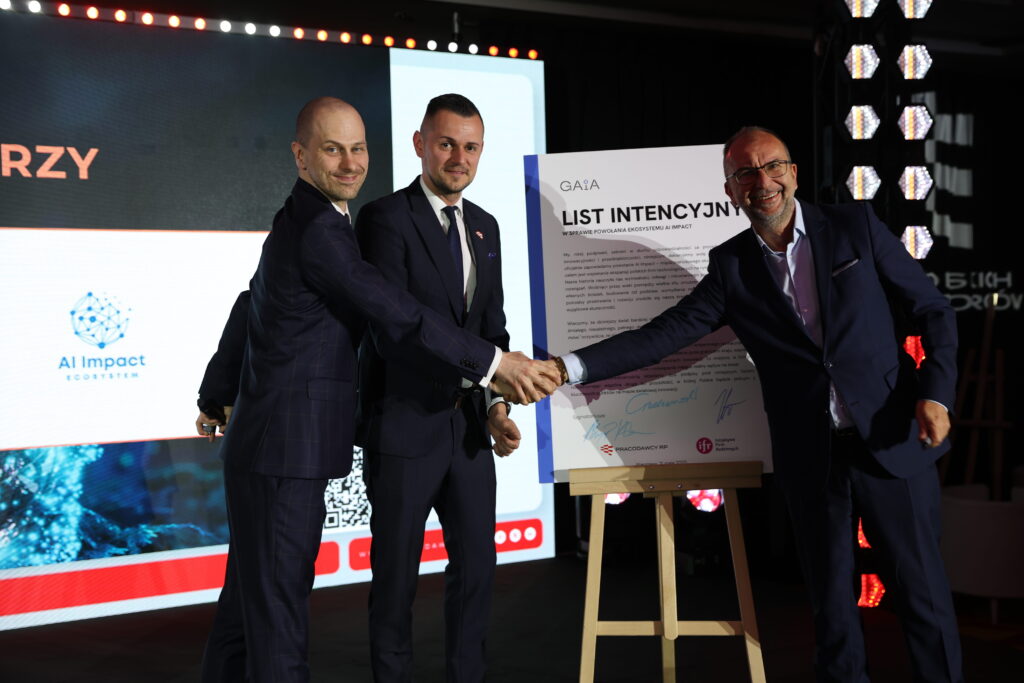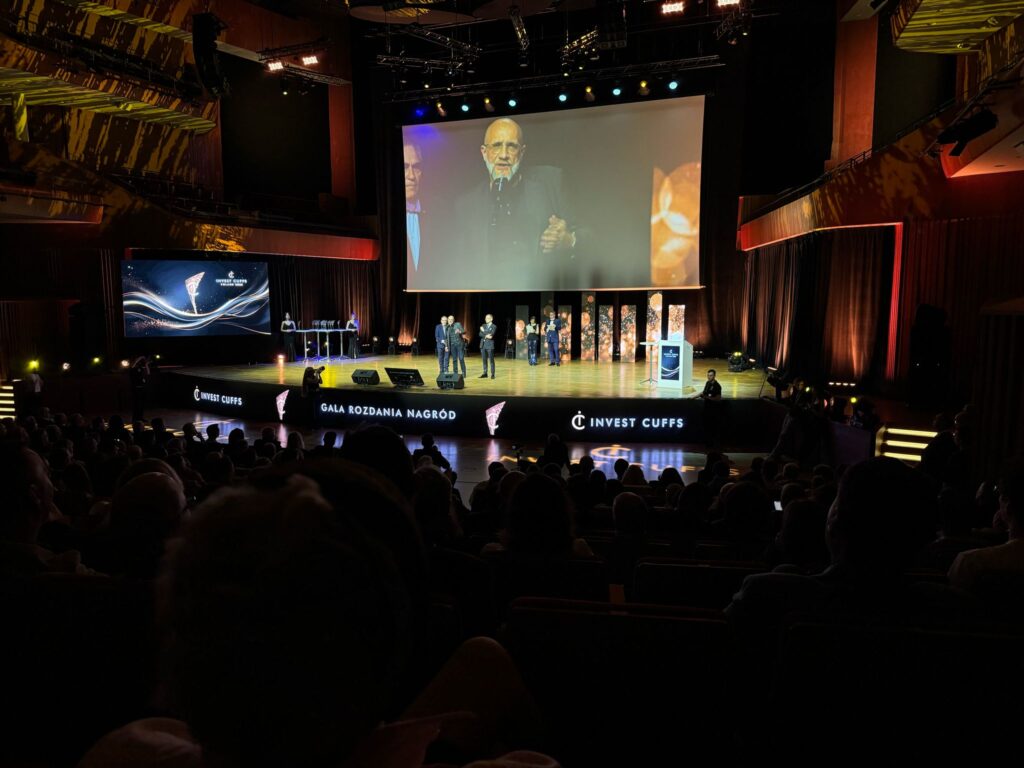Karpacz, 3–5 September 2025 — This year’s Economic Forum in Karpacz delivered a strong message for health innovation and responsible AI. The Global Artificial Intelligence Alliance (GAIA), represented by Edi Pyrek and Damian Ciachorowski, was active across sessions and panels and also partnered with the Healthcare Poland Foundation on the flagship MedTech Innovation Day.
The highlight of GAIA’s presence was the premiere of “SecondBrain”—an intelligent application designed to connect patients, clinicians and hospital administrators in one coherent health ecosystem. In a high-energy keynote, Edi Pyrek introduced the concept created with GAIA members, followed by a live demo led by Prof. Peter Senkus (University for Peace), Piotr Trąbski (Trabsky) and Lesław Skibiński (Medidesk). After the demo, Damian Ciachorowski hosted a pitch session featuring 14 medical startups, assessed by a 20-member Jury. The winning solutions secured a pathway to pilots and deployments in collaboration with the Healthcare Poland Foundation.
SecondBrain: a care ecosystem from bedside to boardroom
SecondBrain was presented as a tool that simplifies the complexity of care. For patients, it provides digital support in moments of uncertainty, translates clinical recommendations into practical steps, issues reminders for medications and appointments, tracks wellbeing, and enables secure teleconsultations and information exchange with physicians.
For clinicians, it centralizes patient information, prepares auto-drafts of clinical documentation, and flags cases requiring urgent attention—while structuring professional, timely communication with patients. For hospital administrators, it integrates with HIS/EHR, delivers workload and quality analytics at ward or facility level, and surfaces population-level trends—while maintaining full GDPR, ISO 27001 and MDR compliance.
The team stressed four operating principles: data security, patient autonomy (augmentation, not replacement of decision-making), professionalism (alignment with clinical and regulatory best practice), and deployment flexibility—on-premises or in a certified cloud, depending on hospital needs.
MedTech Innovation Day: 14 startups, 20 experts, real routes to adoption
The competition block gathered 14 teams presenting innovations spanning AI-assisted diagnostics, telemedicine platforms, next-generation devices and patient-safety systems. The 20-member Jury evaluated each project for innovation, scalability, regulatory readiness and impact on care. The event was led by Michał P. Dybowski (President, Healthcare Poland Foundation), with Damian Ciachorowski (GAIA) as coordinator, Edi Pyrek (AI Impact) as presenter and keynote, and Prof. Jarosław J. Fedorowski (President, Polish Federation of Hospitals) as Jury Chair.
The format had one clear aim: turn the conference stage into concrete progress—identify pilot-ready solutions and connect them with clinical partners, data access and compliance pathways. Winners were invited to continue into structured pilot work with the Foundation.
Why it matters
GAIA’s agenda in Karpacz connects responsible AI with deployment realism in healthcare. SecondBrain shows that it is possible to empower patients and relieve clinical workloads while respecting the operational and regulatory realities of hospitals. MedTech Innovation Day demonstrated that with a well-designed selection and evaluation pathway, innovators can move faster from pitch to pilot—and from pilot to sustainable adoption.
What’s next
The SecondBrain team announced further tests and partnerships across the health system, while MedTech Innovation Day organizers confirmed plans to extend the format that bridges scientific communication and clinical practice. Insights from this edition will feed into tools that help hospitals adopt AI—from clinical validation to quality and data-security management.
